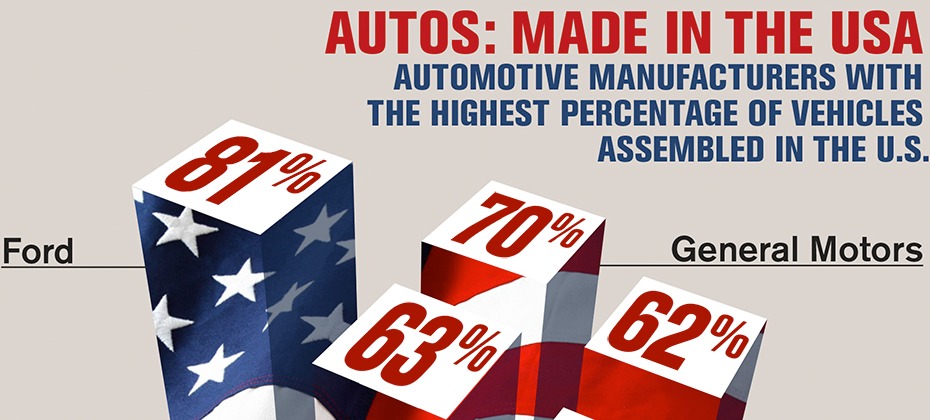Trends
Global trends

During the holidays, you can always expect to see the malls and local shopping centers filled with consumers purchasing gifts for their families and friends.

Unless you’ve lived under a rock for the past couple of weeks, you know the holidays are in full swing. And while spending time with family and friends are holiday staples, another holiday pastime is shopping.

Kevin Dean, president and general manager of Targeting for Experian sat down with Ginger Conlon, editor-in-chief of GingerConlon.com at DMA’s &THEN 2016 Conference. The two discussed a number of topics, including the re-emergence of third-party data for marketers. As the industry has turned towards data-driven marketing, more brands are again leveraging third-party data to enhance their first-party data, as well as pull insights that enables them to better connect with their customers. To read more from the interview, visit GingerConlon.com.

Temperatures are dropping, leaves are falling and seasonal beverages are selling – it must mean that the holiday season is quickly approaching. And while many people get to wait in anticipation for this magical time of year, marketers are hard at work planning and creating their upcoming holiday marketing campaigns. In fact, many marketers are likely focused on developing their most creative designs and strategic promotions – critical components to any campaign. But they also need to give attention to their subscriber lists. A recent study found that as much as 50 percent of lists are inactive. If audiences are not engaging with the brand’s communications, then brands may experience diminished returns, or worse. Why reactivate? The bottom line is that it is more cost effective for marketers to retain existing customers than to acquire new ones. Past buyers represent higher open, click and transaction rates than non-buyers. By reactivating their inactive subscriber base, marketers have an opportunity to improve the return on each marketing campaign. How to reactivate? Email addresses may appear inactive for a number of reasons. The email address may no longer be in use, the subscriber does not find the content relevant, or the subscriber prefers to scan unopened emails and purchase in other channels. Marketers need to understand the cause behind each inactive address in order to strategically re-engage with past customers. Once marketers are able to identify all of their inactive subscribers, they will want to segment them into buckets. For example, those that clicked but have not purchased in the past 90 days, or those that have opened emails, but not clicked or purchased in the past 90 days. Each person is unique in their behaviors and interests, so marketers will need to engage these subscribers in a variety of tactics. Offering an incentive Using an engaging subject line Utilizing a confirmed opt-in strategy Sending more than one message as part of a reactivation strategy Marketers who strategically reactivate their inactive subscriber base have an opportunity to bring past-customers back into their sales funnel, and experience more return on their marketing campaigns. By leveraging data and insight to identify and re-engage this group, brands and marketers can also have a magical holiday season. To learn more about re-engaging your inactive email subscribers, download our e-book.

This feature article from DMN profiles Emad Georgy, Chief Technology Officer for Experian Marketing Services, as well as his team’s approach to data and predictive analytics. According to the article, “The other drive for Georgy’s commitment to data analytics has been interactions with clients … Data can help brands ‘uniquely understand customer behavior. At Experian, with all of our expertise, we can play a role in getting data to a position where it’s actionable.’” Click here to read the full article.

With only a few more weeks until summertime officially comes to a close, marketers need to quickly begin planning for one of their busiest times of the year.

This feature article from the Harvard Business Review discusses how Experian is as nimble as a start-up. According to the article, most companies try to avoid problems. “Experian actually goes looking for them. In fact, it has set up a specific unit – Experian DataLabs — to actively seek out unresolved problems its customers are having and use them as a launchpad to seek out new opportunities and create new products.”

Who doesn’t love a new car? That new car smell, the excitement of seeing less than 8 miles on the odometer, or the invigorating rush you feel when driving your new baby off the lot. There is nothing like it!

The Fourth of July is a special day to celebrate our independence and to show off American pride with parades, fireworks and barbecues spent with friends and family. In the spirit of this season, Experian Automotive recently conducted some research that looked at the vehicles on U.S. roads to see how many were manufactured in America or that were “Born in the USA.” According to our latest research, there are roughly 260 million light-duty vehicles on the road, with nearly 60 percent of them having been assembled domestically. The rest were built in Canada, Japan, Mexico, Germany, South Korea and others countries. From a manufacturer standpoint, it is not surprising that Ford, General Motors and Fiat Chrysler Automobiles had the highest percentage of U.S.-made vehicles currently on the road at 81.2 percent, 70.1 percent and 63.1 percent, respectively. However, Honda (61.9 percent) and Nissan (54.7 percent) also made the top five. In fact, many of the top import manufacturers hover around the 50 percent mark, including Mitsubishi (49.9 percent), Toyota (48.2 percent) and Subaru (47 percent) assembling vehicles in the USA. When looking at vehicle brands, the findings show that, overall, Jeep is the most American with 96.7 percent of its vehicles assembled in the USA. Rounding out the top five were Oldsmobile, Saturn, Ford and Cadillac, with 93.3 percent, 92.4 percent, 83.1 percent and 80.6 percent, respectively. In addition, nearly 93 percent of Ford F150s, the most popular model on the road, were built domestically. The remainder of the top five vehicle models assembled domestically are Honda Accord (88.3 percent), Toyota Camry (86.9 percent), Nissan Altima (100 percent) and Ford Explorer (100 percent). The analysis also looked at domestically assembled models that were most often financed with a loan rather than with a lease or paid for with cash. At the top of the list, the Ford F-150 was the most popular vehicle that was financed with a loan with 69.9 percent, followed by Nissan Altima, Toyota Camry, Honda Accord and Ford Explorer. For more information about this analysis or Experian Automotive insights, visit https://www.experian.com/automotive.